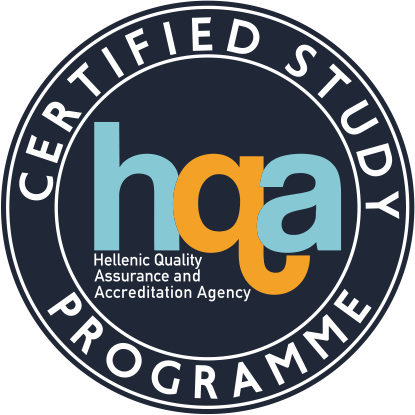Home Economics and Development
Undergraduate level | 3rd semester | Compulsory Unit | ΟΚ3701
Credit Units ECTS: 5
Teaching Hours (Weekly): 3
Course Type: General Background
Prequisites: --
Teaching and Examination Language: Greek
For Erasmus students study course and exams are offered in English.

Course Material
- Family: Economic and social characteristics.
- Theories about the socio-economic development of the family.
- Structure and function of the family
- Family planning and development
- Definition of affinity. Family Substitution. Family Groups. Socio-economic family problems
- Modern Greek family. Trends and perspectives of the modern Greek family
- Modern employability of the disadvantaged groups in society
- The family within the European Union. Legislation framework to sustainable improvement of the living and working conditions of the European family
- Community measures on unemployment
- Single European Labor Market: Goals and prospects
- Employment and unemployment in Greece
- Properly use the local population and local resources mobilization
Learning Outcomes
The course aims at analyzing the socio-economic characteristics of the family and the factors affecting them. Theories on socio-economic development, structure, operation, planning and family problems are analyzed. Lectures are taking place regarding the modern Greek family and employability in the context of the European Union’s legislation, as well as for the conditions of a sustainable improvement of living and working conditions of the European family. Additionally, it is examined how to properly use the local population and how local resources are mobilized. Upon successful completion of the course the student will be able to analyze:
- The policy measures applied to the socio-economic family development.
- The consequences of the measures from a historical, social and economic point of view.
- The remedial actions possibly applicable for the socio-economic development of the family.
General Skills
- Independent work
- Team work
- Experience in a multi-disciplinary environment
- Respect for the diversity and multiculturalism
- Respect for the natural environment
- Free, creative and inductive thinking
Learning and Teaching Techniques - Evaluation
Teaching Methods: In class
Use of ICT: Powerpoint presentations, E-class learning support
Course Organization:
| Activity | Semester Work Load |
|---|---|
| Lectures | 39 |
| Scientific literature study | 26 |
| Essay writing | 20 |
| Independent home study | 40 | Total | 125 |
Assessment Methods:
I. Final written examination (60%) including:
- Short answer questions
- Theory comparative evaluation
II. Midtermwrittenexamination (20%) with shortanswer questions
- Essay (20%)
Suggested Bibliography
- Ελένη Θεοδωροπούλου, 2016. Οικιακή Κοινωνικοοικονομική Ανάπτυξη.
- Muncie, J., Wetherell, M., Langan, M. Dallos, R. (2008). Οικογένεια. Η μελέτη και κατανόηση της οικογενειακής ζωής. Επιμέλεια Δραγώνα Θ. Αθήνα: Εκδόσεις Μεταίχμιο.



